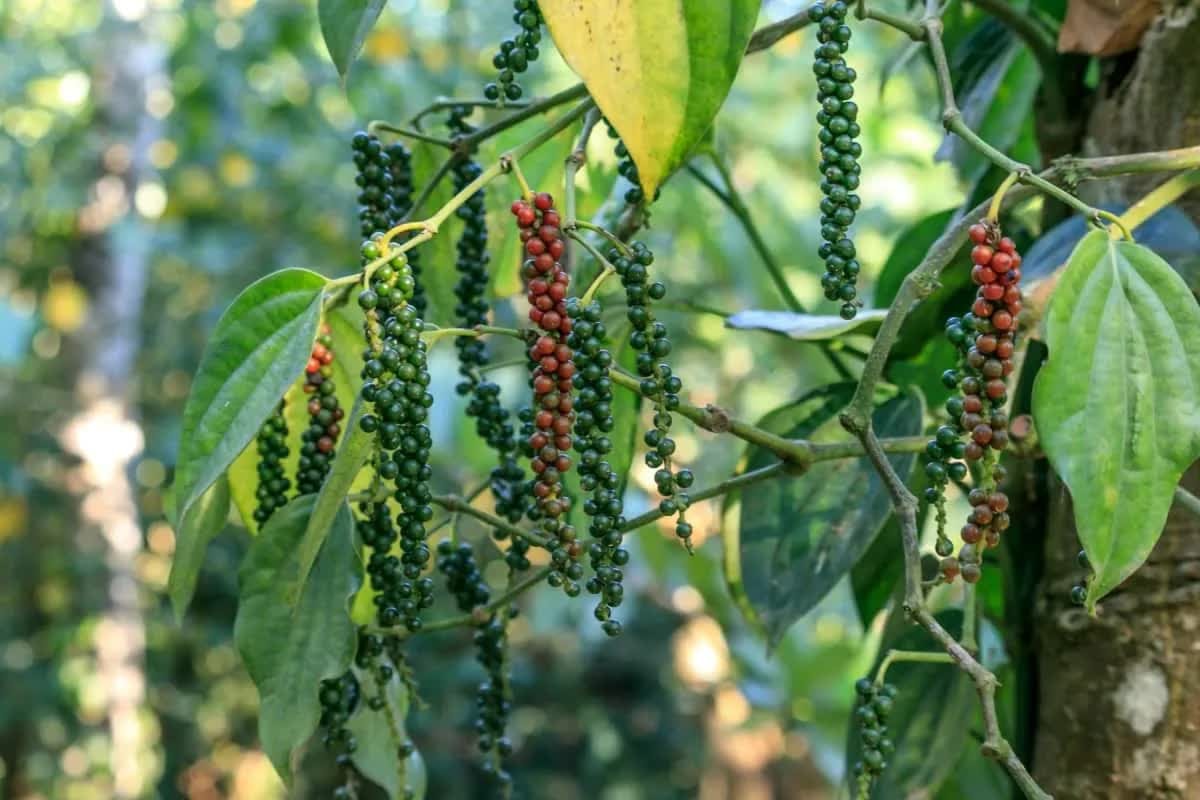In the domestic market
Pepper prices today in some provinces of the Central Highlands and
Southeast did not fluctuate much, ranging from 148,000 - 150,000 VND/kg.
Specifically, Dak Lak and Ba Ria - Vung Tau
have the highest prices, both at 150,000 VND/kg. In particular, pepper
prices in Ba Ria - Vung Tau have not changed compared to yesterday.
Meanwhile, pepper price in Dak Nong is currently at 149,000 VND/kg, unchanged.
In Gia Lai and Binh Phuoc , pepper prices remained at 148,000 VND/kg today. Both provinces increased by 1,000 VND/kg compared to the previous day.
According to the Vietnam Pepper and Spice Association (VPSA), pepper
output in 2025 in Vietnam is likely to decrease due to the impact of
extreme weather such as unseasonal rains and prolonged drought, which
has significantly affected the productivity of many growing areas. This,
combined with high logistics and shipping costs, has contributed to
keeping prices high.
This reflects pressure from tight supply,
while export volumes have fallen slightly but export values remain
high thanks to rising export prices. Factors such as the conversion of
acreage to other crops in some countries have also indirectly supported
domestic prices.
Pepper price prospects in the last months of
2025 and early 2026 are forecast to remain high, with a slight upward
trend prevailing. The main reason is the decline in global supply due to
extreme weather affecting production in Vietnam, India and Indonesia.
Stable demand from major markets, especially during the festive season,
will support prices. However, the market still has the potential risk of
strong fluctuations due to factors such as weather, harvest output and
international trade developments.
In the long term, studies from
the Western Highlands Agriculture and Forestry Science Institute (WASI)
show the potential to improve yields and reduce costs through the model
of growing pepper on living poles (such as Cassia alata, Acacia
leucocephala, Long Mac, and Cotton). This brings high economic
efficiency, prolongs the life of the garden by 20-50%, reduces
investment costs and limits the risk of drought. Sustainable, organic
farming models (such as the example from farmers in Dak Lak with a yield
of 1.5-2 tons/ha/year) can help stabilize supply, thereby reducing
pressure on sudden price increases. If farmers invest more strongly,
similar to coffee (expected output of 1.76 million tons in 2025-2026, up
6% thanks to favorable weather), Vietnamese pepper can contribute to
balancing the global market.
However, experts warn that if supply
surges from new models, it could put downward pressure on prices. The
industry needs a suitable export strategy to protect farmers’ interests
and remain competitive. Overall, the outlook is positive if sustainable
farming is focused, but prices could fluctuate depending on weather and
global demand.
Pepper price today September 25 in the world market
At the end of the most recent trading session, the world pepper market witnessed stability in most commodities.
The price of Brazilian black pepper ASTA 570 decreased by -1.54 USD/ton
to 6,500 USD/ton. Similarly, the export price of Vietnamese black
pepper remained unchanged, with the 500 g/l grade reaching 6,600 USD/ton
and the 550 g/l grade reaching 6,800 USD/ton.
Malaysian ASTA black pepper price also remained stable at USD 9,700/ton.
Indonesian pepper prices remained unchanged. Specifically, Indonesian
black pepper remained unchanged at $7,027 per ton. At the same time,
Indonesian Muntok white pepper closed at $9,957 per ton.
Meanwhile, Vietnamese white pepper remained unchanged at 9,250 USD/ton.
Malaysian ASTA white pepper continued to move sideways at 12,900
USD/ton.
In the international market, pepper prices also recorded
stability in the latest trading session, with some varieties falling
slightly. According to international reports, pepper output in 2025 in
major producing countries such as India and Indonesia also decreased due
to adverse weather, leading to tighter global supply. Demand from major
import markets such as the EU, the US and China remained stable,
especially when entering the year-end festival season, helping prices
stay high.
Source: https://baodanang.vn/gia-tieu-hom-nay-25-9-giu-vung-phong-do-lieu-co-pha-bang-thang-cuoi-nam-3303548.html










